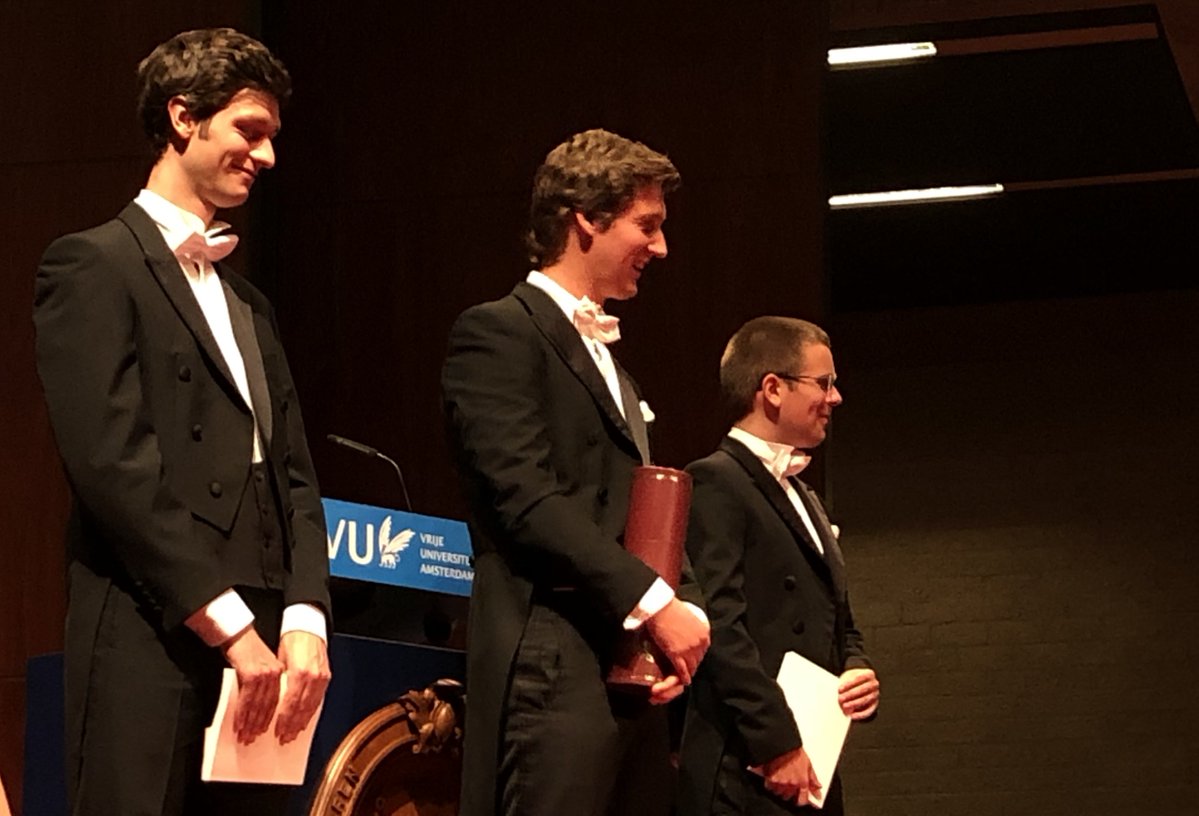Cum laude distinction for Pieter Kleer
On September 9th, Pieter Kleer successfully defended his PhD thesis entitled "When Nash met Markov: Novel results for pure Nash equilibria and the switch Markov chain" at Vrije Universiteit Amsterdam. Pieter received the cum laude distinction for his research on the quantifying effect of safety margins in route planning.
 When drivers avoid certain highways to escape the risk of usual traffic jams, for instance caused by accidents, they can significantly increase the average travel time for everyone in the road network. Among other results, Pieter developed unifying models to analyze the deterioration of the average travel time in road networks, as a result of drivers incorporating safety margins in their route choices.
When drivers avoid certain highways to escape the risk of usual traffic jams, for instance caused by accidents, they can significantly increase the average travel time for everyone in the road network. Among other results, Pieter developed unifying models to analyze the deterioration of the average travel time in road networks, as a result of drivers incorporating safety margins in their route choices.
Picture: Isabella Pozzi
Pieter: “Very often between 7.30 and 9.30 in the morning, there is a collective standstill of traffic on the Dutch highways. Many of the traffic jams are the result of accidents for which one or multiple traffic lanes have to be closed down so that the emergency services can do their job. Take for example the A4 highway around Leiderdorp, which was the most dangerous highway section in 2018 in The Netherlands (*). Drivers travelling from The Hague to Amsterdam might get irritated with the accidents on the A4, and decide to take a detour via Utrecht, using the A12 and A2.” He continues: “This risk-averse behaviour of drivers causes the route A12/A2 to become more congested. How does this affect the average travel time from The Hague to Amsterdam? Unfortunately, it could actually go up.”
In order to model this type of risk-aversion, Pieter studied gametheoretical traffic models. Pieter: “Recently, it was shown in the transportation literature that in these traffic models the average travel time might go up by Y%, assuming that drivers include safety margins of up to Y%”. In his thesis Pieter provides various generalizations and extensions of these theoretical results. Pieter: “ One of the assumptions made in previous work is that all drivers include the same safety margins. We consider settings where every driver can have a different safety margin, which is a much more realistic assumption. Moreover, we also derive a precise understanding of how severe this deterioration of average travel time can be in the worst case”.
Pieter: “In the past, it has been observed that strategic route choices may lead to counterintuitive phenomena, like the Braess paradox, where adding extra capacity to the road network sometimes leads to an increase in travel times. Understanding these phenomena and the potentially negative consequences is crucial when it comes to the planning of infrastructure improvements”.
We are very proud of Pieter and wish him all the best in his new position as a postdoc researcher at the Max-Planck-Institut für Informatik in Saarbrucken.
Credits: CWI website
